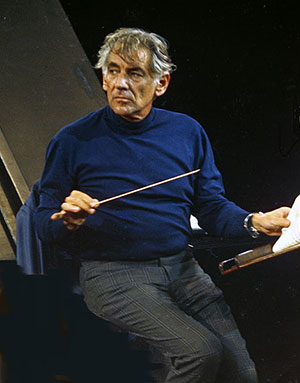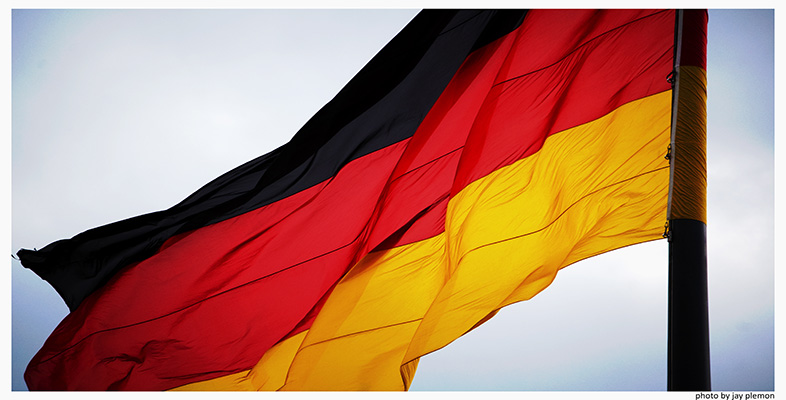 Leonard Bernstein
Given music’s historical importance to German culture, it’s unsurprising it played a part in the events of November 1989. Russian cellist Mstislav Rostropovich flew to Berlin and performed Bach sonatas to passers-by, and barely had the border crossings opened before East Berliners had the opportunity to re-engage with one of the city’s most prestigious cultural institutions: the Berlin Philharmonic Orchestra.
Leonard Bernstein
Given music’s historical importance to German culture, it’s unsurprising it played a part in the events of November 1989. Russian cellist Mstislav Rostropovich flew to Berlin and performed Bach sonatas to passers-by, and barely had the border crossings opened before East Berliners had the opportunity to re-engage with one of the city’s most prestigious cultural institutions: the Berlin Philharmonic Orchestra.On Sunday 12 November 1989, Daniel Baremboim conducted a celebratory performance of Beethoven’s Seventh Symphony in the orchestra’s home, the Philharmonie, to which all East Berliners were invited. But this was merely the prelude to a much more significant and public event later that winter.
On 23 December, an orchestra made up of musicians from the nations involved in World War Two assembled in the Philharmonie to play Beethoven’s Ninth Symphony, under the baton of Leonard Bernstein. Two days later, on Christmas morning, the performance was repeated in East Berlin’s Schauspielhaus, and broadcast live to the world.
This was by no means the first time Beethoven’s music had been linked specifically with contemporary politics. As the musicologist David B Dennis has pointed out, German political leaders have often associated the composer with the ideologies to which they subscribe.
Most infamously, the Nazis appropriated his music (as with the compositions of Bruckner) to underwrite their abhorrent worldview. The Ninth Symphony was played for Hitler’s birthday, for example, because it was said to express the Führer’s capacity for “triumph and joyous victory.”
The performance of Beethoven’s Ninth Symphony played that Christmas morning in 1989, however, was very much a public display of community and brotherhood in the light of recent events, and it even prompted a change to the composition.
In its last movement, the Ninth Symphony sets a text by Friedrich Schiller, An die Freude—or ‘Ode to Joy’. Bernstein, in the spirit of recent events, took the decision to amend the text sung, changing each mention of the word Freude (joy) to Freiheit (freedom).
The concert thus became known as the Berlin ‘Freedom’ concert.
It’s an indication of the potential of music to engage profoundly (if not unproblematically) with politics. Moreover, that Bernstein chose to perform this particular Beethoven symphony adds something not only to our understanding of the wall’s falling, but also to the ongoing cultural history of this remarkable piece of music.
Read more articles from Open University academics about their knowledge and experiences of the fall of the Berlin Wall.
Learn more



Rate and Review
Rate this article
Review this article
Log into OpenLearn to leave reviews and join in the conversation.
Article reviews